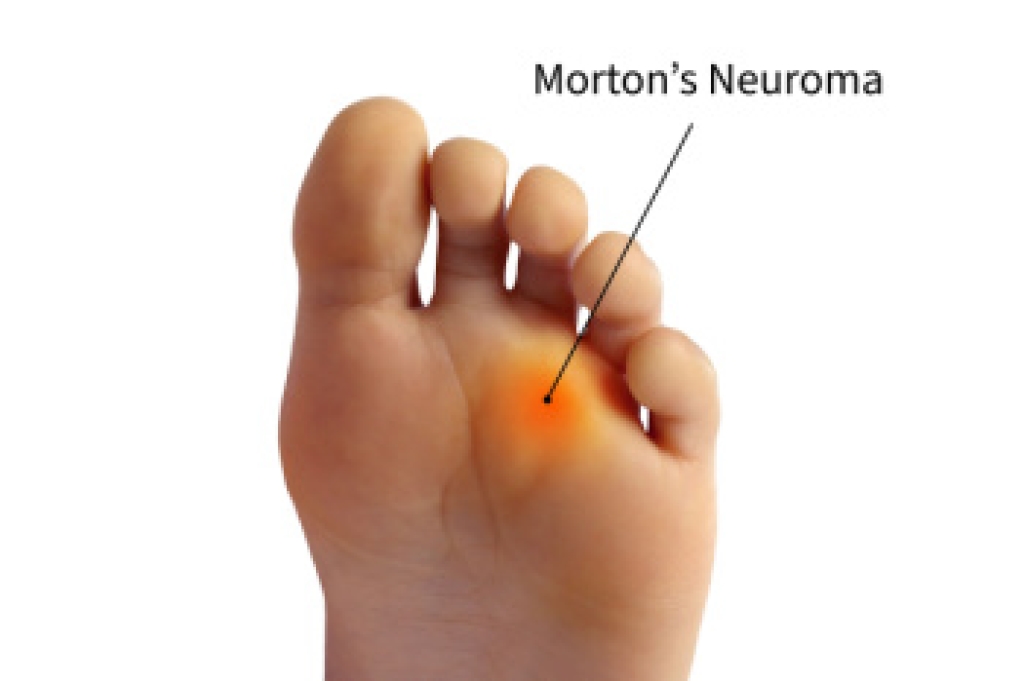
Morton’s neuroma is a painful condition that affects the nerve between the toes, most often between the third and fourth toes. It is caused by repeated pressure or irritation from tight shoes, high heels, foot structure, or high impact activity that thickens the nerve tissue. Symptoms often include burning, tingling, numbness, and a sensation that feels like standing on a pebble. The foot may look normal from the outside, though mild swelling or tenderness can appear between the toes. The pain may worsen with walking and improve when shoes are removed. A podiatrist can help by starting with a careful exam and imaging when needed to confirm the diagnosis. Treatment may begin with shoe changes and custom orthotics, then progress to targeted exercises, anti-inflammatory care, or injections to calm the nerve. In persistent cases, surgery may be discussed. If you suspect you might have a Morton’s neuroma, it is suggested that you make an appointment with a podiatrist for an exam, diagnosis, and treatment plan.
Morton’s neuroma is a very uncomfortable condition to live with. If you think you have Morton’s neuroma, contact Dr. Michael T. Hames of Florence Foot Center. Our doctor will attend to all of your foot care needs and answer any of your related questions.
Morton’s Neuroma
Morton's neuroma is a painful foot condition that commonly affects the areas between the second and third or third and fourth toe, although other areas of the foot are also susceptible. Morton’s neuroma is caused by an inflamed nerve in the foot that is being squeezed and aggravated by surrounding bones.
What Increases the Chances of Having Morton’s Neuroma?
- Ill-fitting high heels or shoes that add pressure to the toe or foot
- Jogging, running or any sport that involves constant impact to the foot
- Flat feet, bunions, and any other foot deformities
Morton’s neuroma is a very treatable condition. Orthotics and shoe inserts can often be used to alleviate the pain on the forefront of the feet. In more severe cases, corticosteroids can also be prescribed. In order to figure out the best treatment for your neuroma, it’s recommended to seek the care of a podiatrist who can diagnose your condition and provide different treatment options.
If you have any questions, please feel free to contact our office located in Florence, Alabama . We offer the newest diagnostic and treatment technologies for all your foot care needs.




